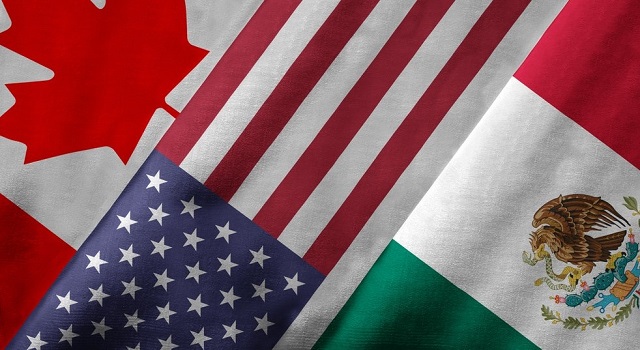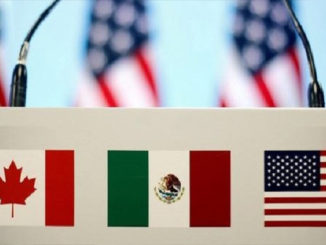
Although most the objectives in renegotiating NAFTA set forth by the Administration Monday are consistent with the parameters defined by the Congress in the 2015 Trade Promotion Authority bill, the Administration’s preoccupation with the trade balance breaks with seventy years of U.S. trade policy – a period that has produced strong economic growth, a robust middle class, rising levels of education and wealth, remarkable innovation and broad international peace.
The Administration has set forth its objectives in renegotiating NAFTA, beginning with an overarching goal to “improve the U.S. trade balance and reduce the trade deficit with the NAFTA countries.” Although most of the rest of the objectives are consistent with the parameters defined by the Congress in the 2015 Trade Promotion Authority bill, the Administration’s preoccupation with the trade balance breaks with seventy years of U.S. trade policy – a period that has produced strong economic growth, a robust middle class, rising levels of education and wealth, remarkable innovation and broad international peace.
At the end of the day, the trade balance has very little to do with trade policy. Our overall trade balance is driven primarily by excessive federal borrowing and our low levels of national savings, combined with our vibrant and welcoming business environment. Our bilateral trade balances with Canada and Mexico are mainly the result of different rates of growth and product-specific supply chains that support our global competitiveness. As a result, a negotiation that promises to reduce the trade deficit is unlikely to succeed.
The reality is that NAFTA has been overwhelmingly positive for the U.S. economy and that the agreement provides an enduring framework for maintaining North America’s strength as the most competitive region in the world. We support the Administration’s commitment to engage our most important trading partners, Canada and Mexico, in discussions to update and upgrade our trade relations. In issuing its negotiating objectives today, the Administration did acknowledge that deeper and ongoing cooperation is the basis for making progress in areas from regulations to customs facilitation to environmental protections. We strongly believe this is the right approach to build on the current economic foundation while promoting innovative trade policies in new areas such as digital trade.
While the Administration has focused on a new trade agreement, the U.S. should also consider creative ways to enhance our prosperity in cooperation with our neighbors. For example, we believe that creating a regional infrastructure bank would better enable us to address the routine frictions and costs of moving $2.4 billion in goods between Canada, the United States, and Mexico every single day. By the same token, we welcome and support emerging efforts in the private sector to enhance productivity by strengthening our talent pipeline, especially in manufacturing and logistics.
The commercial stakes of getting a new trade deal right are high, but a well-functioning trade and investment relationship is also critical to collaboration on matters of national security such as counter-terrorism and counter-narcotics efforts. The United States, Canada and Mexico are neighbors in North America forever, whatever becomes of NAFTA, and the prosperity and security of the United States will be strengthened by a negotiation that acknowledges this reality and builds on it in practical and pragmatic ways.
Matthew Rooney is the Director of Economic Growth at George W. Bush Institute



